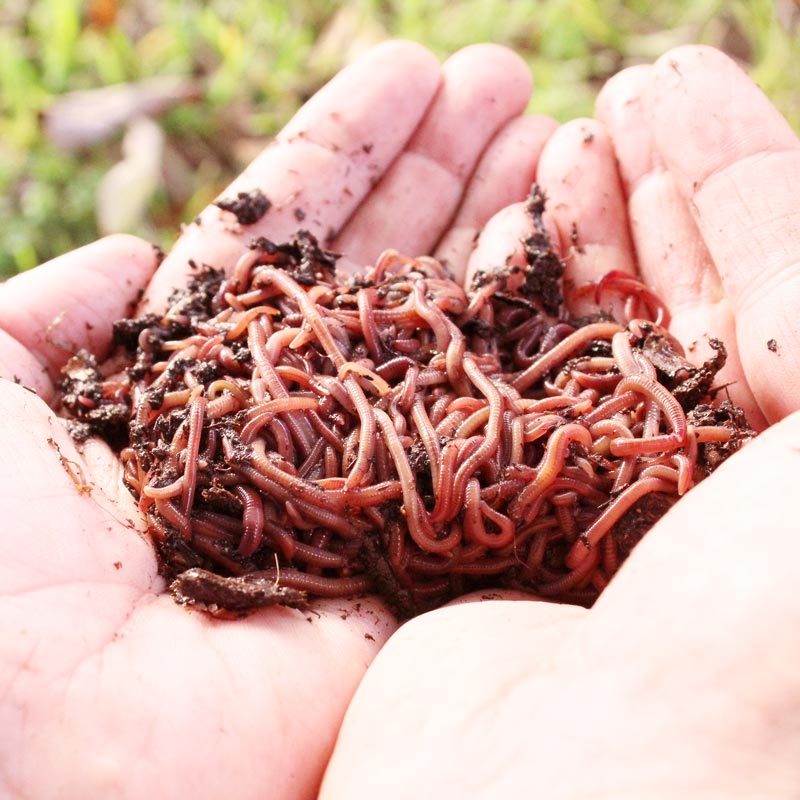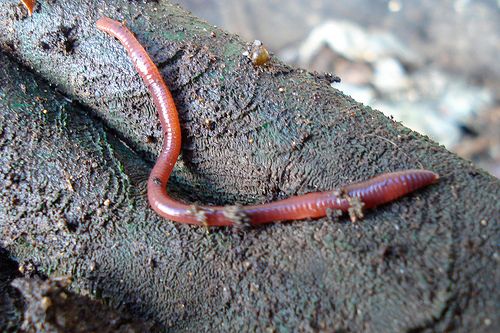Red Wiggler Express: Efficient and Affordable Worm Delivery Services
Red Wiggler Express: Efficient and Affordable Worm Delivery Services
Blog Article
The Unbelievable Globe of Red Wigglers: Increase Your Soil Fertility Today
The function of red wigglers, or Eisenia fetida, in enhancing dirt fertility is a topic of expanding rate of interest amongst garden enthusiasts and farming professionals. These small yet efficient microorganisms change natural waste into important worm spreadings, dramatically boosting dirt health and wellness and promoting sustainable techniques. As we discover the benefits of vermicomposting and the sensible actions to create an effective worm bin, the possible impact of these worms on your horticulture success comes to be significantly apparent. Recognizing the nuances of their care and application might just change the method you come close to soil administration. What understandings can be gotten from integrating these amazing animals into your gardening routine?
Understanding Red Wigglers
Red wigglers, scientifically called Eisenia fetida, are a varieties of earthworm that play a critical function in improving soil fertility. These worms thrive in organic-rich atmospheres, such as compost heaps and decaying plant material, where they take in organic waste and excrete nutrient-dense castings. Their special composition, featuring a segmented body and a clitellum, enables them to replicate rapidly and successfully process big amounts of organic matter.

The environmental importance of red wigglers expands beyond mere waste handling; they contribute to the soil food internet, cultivating a diverse area of bacteria that further improve soil health. Understanding the biology and behavior of red wigglers is necessary for using their full possibility in lasting agriculture and horticulture methods.
Benefits of Vermicomposting
(Red Wiggler Express)Taking advantage of the power of red wigglers with vermicomposting deals many benefits that dramatically enhance soil health and wellness and fertility. One of the primary benefits is the manufacturing of nutrient-rich worm spreadings, which are an exceptional all-natural fertilizer. Red Wiggler Express. These spreadings contain necessary nutrients like nitrogen, phosphorus, and potassium, advertising durable plant development and improving crop yields
In addition, vermicomposting boosts dirt structure and aeration. The visibility of worm spreadings enhances dirt structure, allowing for better water retention and drain. This well balanced moisture degree is vital for root advancement and the general wellness of plants. In addition, red wigglers aid damage down natural matter, accelerating decomposition and recycling nutrients back into the dirt.
Vermicomposting likewise cultivates microbial activity, which is vital for a healthy soil ecosystem. Beneficial bacteria grow in the visibility of worm castings, helping in the malfunction of natural materials and improving nutrient availability to plants.
Last but not least, vermicomposting offers as a reliable waste management solution, lowering land fill waste by recycling cooking area scraps and various other organic materials. This not only adds to environmental sustainability but likewise promotes a circular economic climate within gardening and agriculture.
Just How to Establish a Worm Container
Establishing up a worm container is a simple process that can significantly boost your composting efforts. Begin by selecting an appropriate container, which can vary from a readily readily available worm bin to a straightforward plastic or wooden box (Red Wiggler Express). Guarantee the container has sufficient air flow; tiny holes in the lid and sides will certainly promote air circulation
Following, create a bed linen layer to give a comfy setting for the red wigglers. This can be made from shredded paper, cardboard, or coconut coir, moistened to a wet, sponge-like uniformity. Fill the container to around one-third complete with this bed linens material.
When the bedding is prepared, it's time to present the worms. Red wigglers prosper in organic waste, so place them carefully onto the bed linen. Cover the worms with a light layer of added bedding to help them adapt.
Feeding Your Red Wigglers
Giving the appropriate food for your red wigglers is vital for their health and wellness and the performance of your composting system. Red wigglers grow on a different diet regimen, mostly containing natural products such as vegetables and fruit scraps, coffee grounds, and shredded paper. These materials not just provide important nutrients but likewise add to the microbial activity in the worm container, which is crucial for the worms' digestion.
It is necessary to avoid particular foods, such as dairy products, oils, and meats, as these can attract parasites and produce unpleasant smells. Furthermore, citrus peels and excessively zesty foods must be restricted as a result of their possible to harm the worms. A well balanced strategy to feeding includes checking the amount of food presented to the container, making certain that it is taken in within a practical period to prevent excess waste accumulation.
To advertise ideal food digestion, it is helpful to chop or shred larger food things before including them to the container. This technique enhances the area for microbial action, facilitating quicker decomposition and improving the general effectiveness of your composting system. Frequently observing the worms' feeding behaviors will certainly help you change their diet as needed.
Utilizing Worm Castings in Your Yard

(Red Wiggler Express)Including worm spreadings into your yard can be completed by mixing them right into the soil or using them as a top clothing. The slow-release nature of these spreadings ensures that nutrients are readily available to plants over an extensive period, minimizing the requirement for artificial fertilizers. In addition, worm castings include helpful microorganisms that promote healthy dirt communities, improving the overall resilience of your garden.
To make best use of the benefits, aim to use approximately one part worm castings to 3 components dirt in your growing beds. Routine applications can bring about enhanced plant yields and healthier plants, making worm castings a very useful source for both beginner and skilled garden enthusiasts alike. By utilizing this natural modification, you can cultivate a flourishing garden while adding to lasting horticulture techniques.
Verdict
Finally, red wigglers exhibit the important duty of vermicomposting in enhancing soil fertility. Their ability to transform organic waste right into nutrient-rich castings significantly enriches dirt structure and supports microbial diversity. Establishing a vermicomposting system not just advertises sustainable gardening practices but additionally contributes to ecological wellness. By leveraging the advantages of these exceptional organisms, garden enthusiasts can grow extra find more productive and resilient ecosystems, eventually fostering a more lasting approach to farming and cultivation.
Report this page